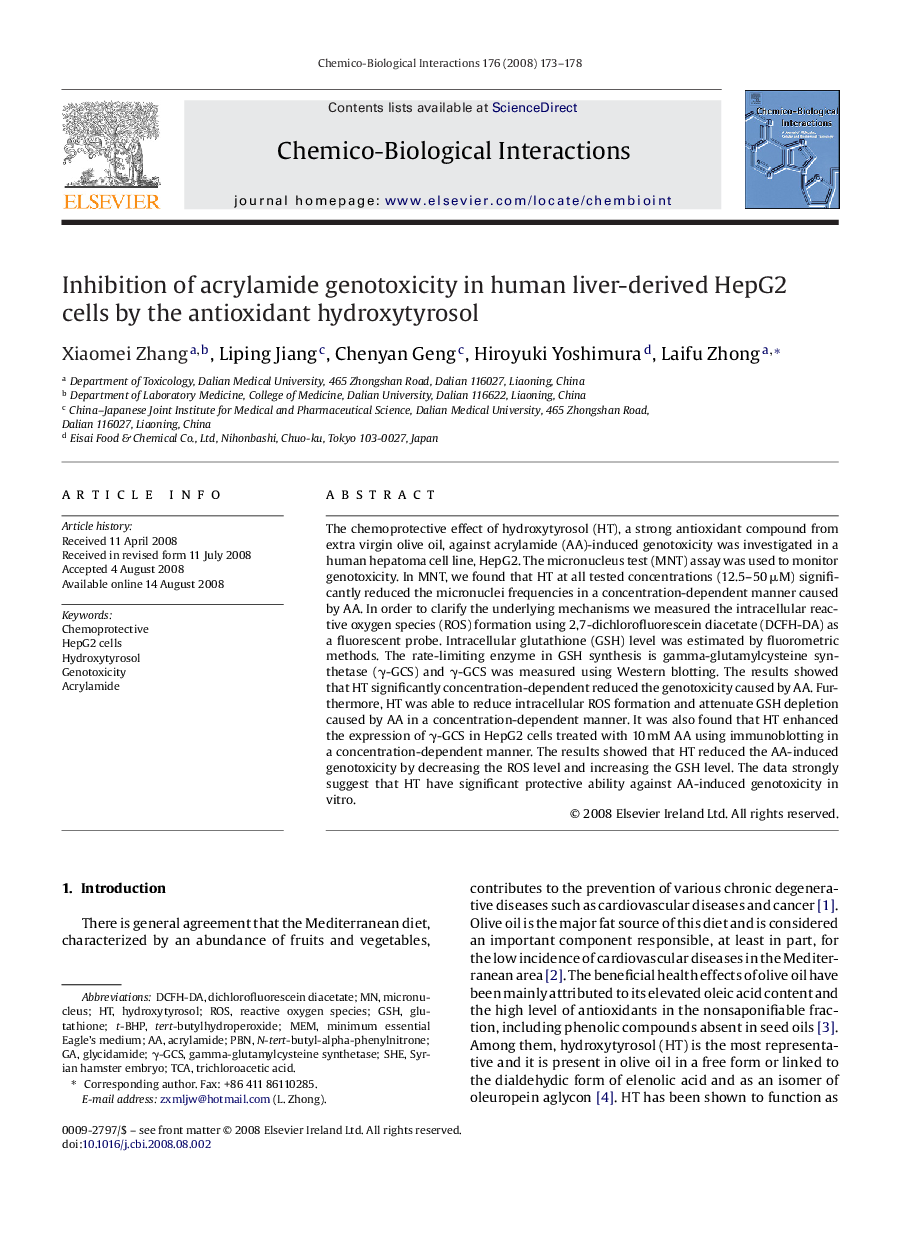| Article ID | Journal | Published Year | Pages | File Type |
|---|---|---|---|---|
| 2582422 | Chemico-Biological Interactions | 2008 | 6 Pages |
The chemoprotective effect of hydroxytyrosol (HT), a strong antioxidant compound from extra virgin olive oil, against acrylamide (AA)-induced genotoxicity was investigated in a human hepatoma cell line, HepG2. The micronucleus test (MNT) assay was used to monitor genotoxicity. In MNT, we found that HT at all tested concentrations (12.5–50 μM) significantly reduced the micronuclei frequencies in a concentration-dependent manner caused by AA. In order to clarify the underlying mechanisms we measured the intracellular reactive oxygen species (ROS) formation using 2,7-dichlorofluorescein diacetate (DCFH-DA) as a fluorescent probe. Intracellular glutathione (GSH) level was estimated by fluorometric methods. The rate-limiting enzyme in GSH synthesis is gamma-glutamylcysteine synthetase (γ-GCS) and γ-GCS was measured using Western blotting. The results showed that HT significantly concentration-dependent reduced the genotoxicity caused by AA. Furthermore, HT was able to reduce intracellular ROS formation and attenuate GSH depletion caused by AA in a concentration-dependent manner. It was also found that HT enhanced the expression of γ-GCS in HepG2 cells treated with 10 mM AA using immunoblotting in a concentration-dependent manner. The results showed that HT reduced the AA-induced genotoxicity by decreasing the ROS level and increasing the GSH level. The data strongly suggest that HT have significant protective ability against AA-induced genotoxicity in vitro.
